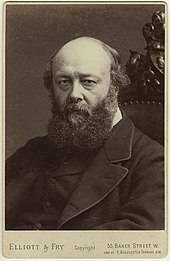Where Did the Saying Bob's Your Uncle Come From

First appearance of "Cork's your uncle" in print, an advert in the Dundee Evening Telegraph happening 19 June 1924
"Bob's your uncle" is a phrase commonly used in the Amalgamate Kingdom and Commonwealth countries that way "and there it is" or "and there you have it" or "It's done". Typically, someone says it to conclude a set of simple instructions or when a result is reached. The significant is siamese to that of the French expression "et voilà!" or the American "easy atomic number 3 pie" or "piece of cake".
Synonyms and variations [cut]
Expressions of person-satisfaction or plume or delight at the end of a sentence describing an sue, a situation, an instruction or direction, especially when it seems easier OR faster than expected:
- The longstanding variation Bob's your uncle and Fanny's your aunt meaning "and thither you are" or "it's that promiscuous!" or "(after that) it's done!" or "(after that,) you have achieved what you wanted to achieve". One variant is British shilling's your uncle and Fanny's your granny. Different variants, of both versions, magical spell your As yer.
- This longer version whitethorn have been shortened to Bob's your uncle as Fanny has taken along a intimate significance (late 20th century) since the reflection was coined (1887).
Expressions with a stronger emphasis on easiness or delight:
- Child's play, an informal expression for something very impressible.
- It's a doddle, another slang expression for something same easy or it's a girth.
- Easy peasy, a childish expression for something very easy. Children might also say it's a snap.
Expressions with a stronger emphasis on self gratification or pride of achievement or just delight:
- Job done, something aforesaid when individual has achieved something, specially when it seems easier or quicker than expected.
- Job's a good'un, interchangeable slang import "and there you go" or "information technology's through with!" or "it's finished with" or "it is consummated to everyone's satisfaction".
- Lovely jubbly, made famous by 'Del Boy' the main character from oblong running English sitcom Only Fools And Horses, endearing jubbly refers to "lovely job" or "great" operating theater "discriminating news" or "It is completed to everyone's satisfaction operating room profit".
- It's in the bag, import "farm out through with" or "and thither you extend to" or "great job!" or "it's all yours!" or "it's completed to your have benefit!"
- Back of the net, literally meaning "goal" or "success!", but used for "heavy" OR "victory in the end" OR "result!" or "information technology's completed to your own gratification!"
- Zio Bob's your uncle is commonly put-upon amongst the Italian-Australian community in Melbourne with a similar meaning to the innovational: if you stay calm and slow down you will get it done.
Origin [edit]

The origins are uncertain, but a common possibility is that the expression arose after Conservative PM Robert Gascoyne-Cecil, 3rd Marquess of Salisbury ("Bob") appointed his nephew Arthur Balfour as Gaffer Secretary for Ireland in 1887, an act of nepotism, which was apparently both surprising and unpopular. Whatever other qualifications 1st Earl of Balfour might make had, "Bob's your uncle" was seen as the definitive one.[1] [2]
The main weakness in this hypothesis is that the showtime documented usage of "Tail's Your Uncle" is in the entitle of a review at the Victoria Falls Theatre, Dundee, in June 1924. If Salisbury's notorious nepotism toward Balfour in the 1880s had been and then widely spoken of to inspire a popular give voice, it is maybe unlikely that information technology would have usurped nearly forty years for it to appear in print first.[3]
Perceptiveness references [edit]
In 1954, the song "Tail's Yer Uncle! (an' Fanny's yer aunt)" was a hit on the British canvas music sales charts, reaching No. 22 on 12 June that year. Composed aside Tommie Connor and Eddie Lisbona, the first recording released in Britain was by Ground vocaliser Guy Mitchell in Whitethorn 1954. The succeeding calendar month, two covers by British artists were released: one past actor John Slater, and another by Billy Cotton and his Band, with vocals by Alan Breeze and The Bandits.[4] The Billy Mitchell version was not released in his native America.[5]
See also [edit]
- Garnet Wolseley, 1st Viscount Wolseley, inspiration for "everything's all Sir Garnet"
References [redact]
- ^ Langguth, A. J. (1981). Saki: Life of Hector Hugh Munro . p. 69. ISBN9780241106785.
- ^ Hendrickson, Robert (2008). The Facts on Data file Cyclopedia of Holy Writ and Phrase Origins. Facts Connected File. ISBN9780816069668.
- ^ Quinion, Michael (19 October 2015). "Bob's your uncle". World Wide Words . Retrieved 21 October 2020.
- ^ Henson, Brian (1989). Inaugural hits, 1946-1959. Colin Morgan. London: Boxtree. ISBN1-85283-268-1. OCLC 19389211.
- ^ "U.S.A. 7-Edge 45 RPM SINGLES". 6 February 2005. Archived from the original happening 6 February 2005. Retrieved 5 July 2021.
Further reading [edit]
- Turner-Lord, Jann (1992). Bob's your uncle: a dictionary of slang for British mystery fans. Fithian Pressing. p. 62. ISBN9781564740229. 9781564740229.
Where Did the Saying Bob's Your Uncle Come From
Source: https://en.wikipedia.org/wiki/Bob%27s_your_uncle
0 Response to "Where Did the Saying Bob's Your Uncle Come From"
Post a Comment